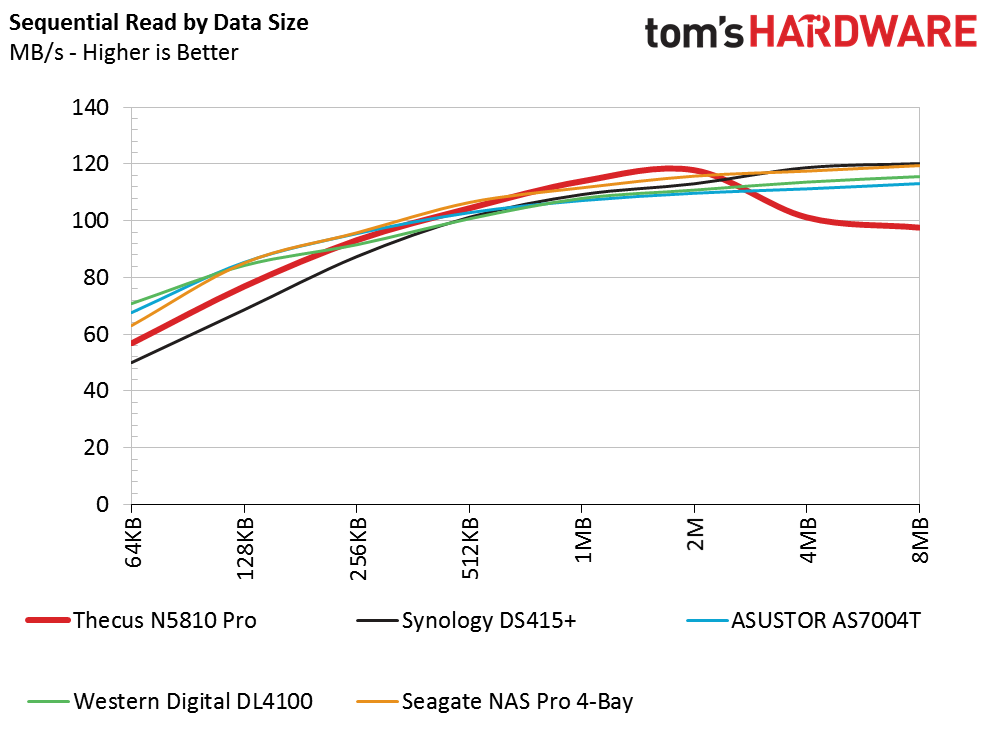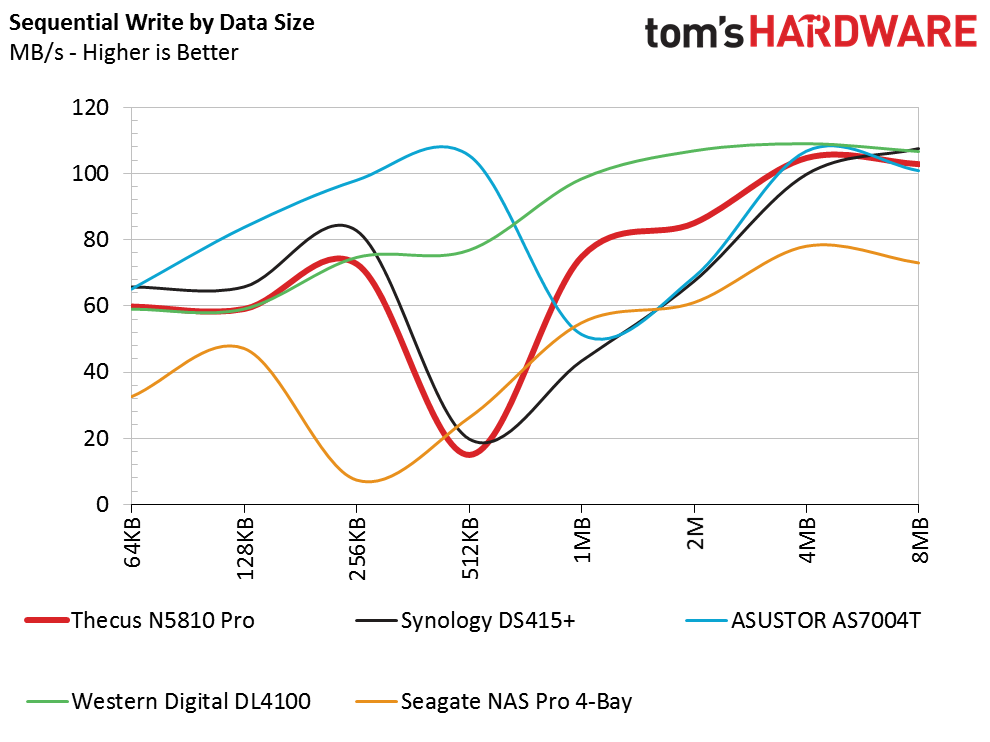Thecus N5810 Pro NAS Review
Thecus' N5810 Pro is the only NAS in its price class with a built-in battery backup that allows the system to save your data even after the power goes out.
Why you can trust Tom's Hardware
Sequential Data Transfer by Size
We'll run through a few synthetic tests to get a better understanding of how the Thecus NAS performs in relation to other products on the market, some priced higher and others less expensive.


First, we look at sequential reads with a number of block sizes. All of the network-attached storage systems perform well in this test, but there is some variation. The N5810 Pro drops a bit of performance with the very large blocks. It's something we'll also see later in the review when we test with real data.
Next, we use the same type of data but instead write to the NAS products. The first thing you see is how much different the results are. NAS appliances can cache writes depending on how you configure them. We enable EXT4 write caching, as well as other caching features, whenever possible. This can trick some long write tests when the buffer fills and then flushes, depending on when the test occurs. We suspect that is why this metric deviates so much.
Get Tom's Hardware's best news and in-depth reviews, straight to your inbox.
Current page: Sequential Data Transfer by Size
Prev Page Software Interface Next Page Random Data Transfer by Size
Chris Ramseyer was a senior contributing editor for Tom's Hardware. He tested and reviewed consumer storage.
-
Lulzon Typically battery backups are SLA (sealed lead acid) which is most likely why they don't get packaged with NAS systems - they're heavy, they're a dangerous good by transportation and shipping rules, they expand and can release gasses when under load and charged. The upside? They have way more capacity than that of a lithium-ion as shown in this little unit, they (probably) cost much less, and they last longer (5+ years vs 2-3). In terms of a NAS though, the capacity isn't really an issue if the only thing the NAS is doing is shutting down to avoid data loss/corruption.Reply -
Aris_Mp 55.3W under heavy throughput and 35.1W at idle with 5x Seagate ST500DM005 HDDs and RAID 6 configuration.Reply -
TontNZ I'm not sure if I've just missed it - but: How many drives of what brand and capacity, in what raid mode were used for the testing?Reply
It would be good to single this information out into one of the section headings. It may be redundant as you presumably standardise this across NAS of a given bay capacity - but it would still be useful. -
This is an impressive device. I'd definitively give it a try for home office solutions. The only downside I can see to it is that if the internal memory were to die (flash, ram), the backups are probably gone unless they keep using the same system/setting organization and it is forward compatible with other similar systems.Reply
5 years is a long time and unless they intend to have the same product line around for a long time, it will either be EOL or replaced with an updated version.